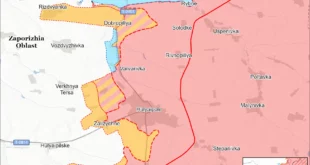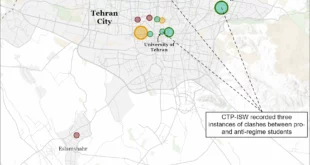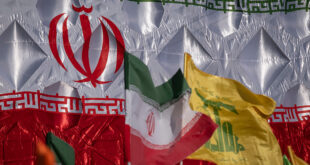
Greece and Turkey will hold explanatory talks for the first time in years following the tensions that peaked last year between the regional rivals, although the two parties have yet to agree on the issues to be discussed.
Greece and Turkey will sit down for exploratory talks on Jan. 25 in Istanbul for the first time since March 2016. After the high tensions of last year and being nudged to discussions by the European Union and the United States, the two historic rivals both seem to believe they benefit from the optics of talks.
“In the short term, both Greece and Turkey are content with the process unfolding in this format,” Kostas Ifantis, former director for research at the Greek Ministry of Foreign Affairs and professor of international relations at Panteion University in Athens, told Al-Monitor.
The technical, pre-negotiation talks are a chance for both countries to consolidate what they believe to be their gains and showcase to outside powers their good faith, even if they can’t agree on what to discuss.
“The Greeks say the agenda is just the maritime zone; the Turks say it’s everything. But neither side says the other is wrong,” said Sotiris Roussos, a former senior Middle East expert at the Greek Foreign Ministry and head of the Center for Middle East, Mediterranean and Islamic Studies.
Athens is keen to keep the discussions limited to the issue of maritime demarcation and exclusive economic zones (EEZs), while Ankara wants a broader format to discuss the demilitarization of Aegean islands, the Muslim minority in Greece and the status of islet formations.
“What Turkey wants is to share the Aegean and the other issues — such as demilitarization and the Muslim minority — are bargaining chips,” Roussos told Al-Monitor.
Ankara has long claimed Greece’s small island chains box in the country of 82 million people with the largest coastline in the region. Talks between Greece and Turkey in the current format started in 2002, predating the election of Turkish President Recep Tayyip Erdogan. In those early years, Turkey was a serious candidate for the EU. Today, they occur in the context of growing estrangement between Turkey and the West.
“If these are exploratory talks, why not highlight what the problems are,” said Murat Aslan, a former Turkish military intelligence professional who has held various roles in the Defense Ministry and General Staff.
He told Al-Monitor that talks with Athens are just one part of Ankara’s concerns regarding its lack of support in the wider region. “From the Greek side, the No. 1 threat perception is Turkey; from the Turkish side, Greece is not No. 1.”
He added, “Turkey is alone in Syria, it is alone in Libya, it is alone in the eastern Mediterranean, it is alone everywhere. The Turkish people are more concerned about terrorism.”
Greece has made common cause with other regional countries as it seeks to address the threat it believes Ankara poses to its interest. Athens signed a maritime demarcation agreement last August with Egypt, concluded a series of memoranda of understanding with the North African country’s ally — the United Arab Emirates — and deepened cooperation with Israel by signing a $1.7 billion defense agreement.
“This has been an unprecedented 12 months of Greek diplomacy. Athens is behaving as a regional player,” Ifantis noted.
“Greece showed decisiveness and consistency in its foreign policy in the eastern Mediterranean over the last 12 months. It is definitely in a stronger position than it was in 2016,” said Antonia Dimou of the Athens-based Institute for Security and Defense Analysis.
She pointed to Greece’s actions to prevent migrants from Turkey crossing the Evros land border and maritime routes in early 2020. “The attempts to violate Greek borders and EU borders have not been successful due to the Greek coast guard and police,” she told Al-Monitor.
Greece is also expanding its defense budget. On Jan. 14, the Greek parliament approved a $3 billion purchase of 18 Rafale fighter jets from France.
“Exploratory talks are in no way undesirable for Greece. This format gives Greece time for a critical part of the new arms procurement program to materialize,” Ifantis added.
Turkey also believes it is in a stronger position. “The latest developments in the eastern Mediterranean indicate that Turkey is really a power in the region, and now the EU is trying to build bridges to compromise, not to confront,” Aslan said.
Asked about the effect of Greece’s diplomatic push in the region, Aslan said it has not affected the Turkish calculus. “More important is Turkish-EU relations and what the EU prefers as its strategy toward Turkey.”
Turkey is the EU’s fifth-largest trading partner and hosts an estimated 4 million refugees. Leaders in Berlin, Rome and Madrid have been reluctant to back Greece and are keen for Athens and Ankara to engage in dialogue.
The threat of sanctions appears limited. “Now the EU can say there is no reason to discuss sanctions because we don’t want to disturb the talks. The United States is on the same track; they don’t want troubles in the eastern Mediterranean,” Roussos said.
Roussos believes that Greece has overreached in the eastern Mediterranean and that here Turkey has succeeded in blocking its claims.
“Greece has tried to persuade people that we are owning — via EEZs — over half of the eastern Mediterranean. This is absurd,” he noted. “The area east of Rhodes is a disputed area. So it is a no-no situation. Any plan of Greece for the EastMed pipeline is out of the question without Turkey.”
Greece said the countries should take the issue of Kastellorizo, the tiny island of 500 people laying at the center of eastern Mediterranean tensions, to international court. Turkey prefers to negotiate the Aegean and eastern Mediterranean issues as one.
“We go to the international courts and Athens knows very well it would lose over Kastellorizo, but it would be a major precedent in the Aegean and here Greece has a stronger case,” Ifantis said.
At the moment, there appears to be little impetus for either side to agree. Contrarily, the one benefit may be that the Greek-Turkish rivalry — once isolated — has become part of larger tensions in the Levant and Middle East. If Erdogan wanted to pivot the West, a breakthrough in talks with Greece would probably be more manageable than say Syria.
That would still require both Athens and Ankara to compromise on issues that they have staked as those of sovereignty and national interest. Until either side perceives sufficient benefits, they will likely keep posturing for the future.
 Eurasia Press & News
Eurasia Press & News



